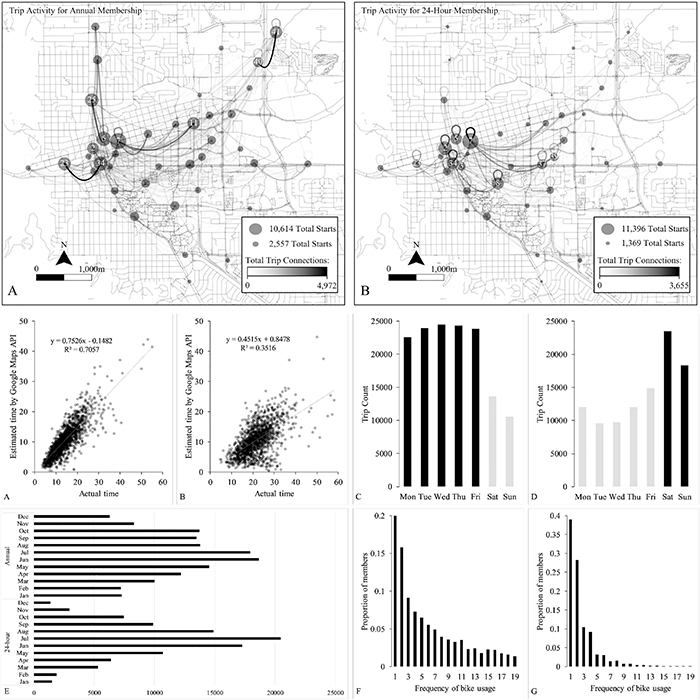
New article first published online: Applied Energy; DOI: 10.1016/j.apenergy.2019.04.007
ABSTRACT: Many cities around the world have integrated bike-sharing programs into their public transit systems to promise sustainable, affordable transportation and reduce environmental pollution in urban areas. Investigating the usage patterns of shared bikes is of key importance to understand cyclist’s behaviors and subsequently optimize bike-sharing programs. Based on the historical trip records of bike users and station empty/full status data, this paper evaluated and optimized the bike-sharing program BCycle in the city of Boulder, Colorado, the United States, using a combination of different methods including the Potential Path Area (PPA) and the Capacitated Maximal Covering Location Problem (CMCLP). Results showed significantly different usage patterns between membership groups, revealed diverse imbalance patterns of bike supply and demand across stations in the city and provided three system upgrading strategies about maximizing the service coverage. This case study is committed to future energy conservation and sustainable energy systems nationwide and ultimately worldwide, by holding immerse potential to adapt the resulting optimization strategies to the cities with a similar urban context across the United States, as well as more emerging bike-sharing programs in other countries, such as China.
Read the full publication at Applied Energy